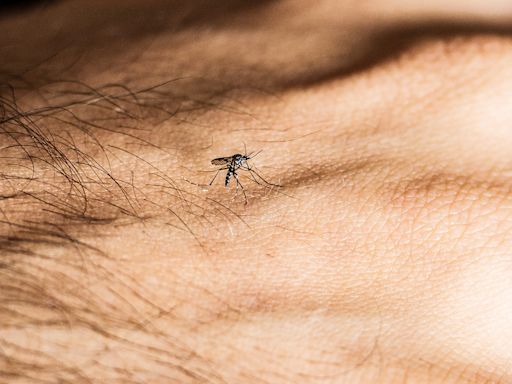Search results
May 14, 2024 · There is no widely available dengue vaccine to prevent dengue infection. The best way to prevent dengue is to protect yourself from mosquito bites. Use insect repellent. Wear loose-fitting, long-sleeved shirts and pants. Take steps to control mosquitoes in and around your home. Prevent mosquito bites.
- Dengue Vaccine
Overview. Dengvaxia is the only dengue vaccine currently...
- About Dengue
The best way to prevent dengue is to avoid mosquito bites....
- Chikungunya
The best way to prevent chikungunya is to protect yourself...
- Dengue
Preventing Dengue. About dengue prevention, dengue vaccine,...
- Dengue Vaccine
- Key Facts
- Overview
- Symptoms
- Diagnostics and Treatment
- Global Burden
- Transmission
- Risk Factors
- Prevention and Control
- Who Response
Dengue is a viral infection transmitted to humans through the bite of infected mosquitoes.About half of the world's population is now at risk of dengue with an estimated 100–400 million infections occurring each year.Dengue is found in tropical and sub-tropical climates worldwide, mostly in urban and semi-urban areas.While many dengue infections are asymptomatic or produce only mild illness, the virus can occasionally cause more severe cases, and even death.Dengue (break-bone fever) is a viral infection that spreads from mosquitoes to people. It is more common in tropical and subtropical climates. Most people who get dengue will not have symptoms. But for those who do, the most common symptoms are high fever, headache, body aches, nausea, and rash. Most will get better in 1–2 weeks. Some people develo...
Most people with dengue have mild or no symptoms and will get better in 1–2 weeks. Rarely, dengue can be severe and lead to death. If symptoms occur, they usually begin 4–10 days after infection and last for 2–7 days. Symptoms may include: 1. high fever (40°C/104°F) 2. severe headache 3. pain behind the eyes 4. muscle and joint pains 5. nausea 6. v...
There is no specific treatment for dengue. The focus is on treating pain symptoms. Most cases of dengue fever can be treated at home with pain medicine. Acetaminophen (paracetamol) is often used to control pain. Non-steroidal anti-inflammatory drugs like ibuprofen and aspirin are avoided as they can increase the risk of bleeding. For people with se...
The incidence of dengue has grown dramatically around the world in recent decades, with cases reported to WHO increasing from 505 430 cases in 2000 to 5.2 million in 2019. A vast majority of cases are asymptomatic or mild and self-managed, and hence the actual numbers of dengue cases are under-reported. Many cases are also misdiagnosed as other feb...
Transmission through the mosquito bite The dengue virus is transmitted to humans through the bites of infected female mosquitoes, primarily the Aedes aegypti mosquito. Other species within the Aedes genus can also act as vectors, but their contribution is normally secondary to Aedes aegypti. However, in 2023, a surge in local transmission of dengue...
Previous infection with DENV increases the risk of the individual developing severe dengue. Urbanization (especially unplanned), is associated with dengue transmission through multiple social and environmental factors: population density, human mobility, access to reliable water source, water storage practice etc. Community risks to dengue also dep...
The mosquitoes that spread dengue are active during the day. Lower the risk of getting dengue by protecting yourself from mosquito bites by using: 1. clothes that cover as much of your body as possible; 2. mosquito nets if sleeping during the day, ideally nets sprayed with insect repellent; 3. window screens; 4. mosquito repellents (containing DEET...
WHO responds to dengue in the following ways: 1. supports countries in the confirmation of outbreaks through its collaborating network of laboratories; 2. provides technical support and guidance to countries for the effective management of dengue outbreaks; 3. supports countries in improving their reporting systems and capture the true burden of th...
Oct 5, 2022 · For now, in areas where dengue fever is common, the best ways to prevent infection are to avoid being bitten by mosquitoes and to take steps to reduce the mosquito population. Symptoms. Many people experience no signs or symptoms of a dengue infection.
Feb 16, 2024 · Maintaining good hydration, particularly as people are sick and having fevers, is important. They can use acetaminophen to take care of the fevers, bring down the temperature, and then ensure they take in fluids and still get some form of eating."
May 15, 2024 · Evidence points to the fact that sequential infection increases the risk of developing severe dengue. The time interval between infections and the particular viral sequence of infections may also be of importance. The best way to prevent infection is to avoid being bitten by mosquitoes during daytime.



